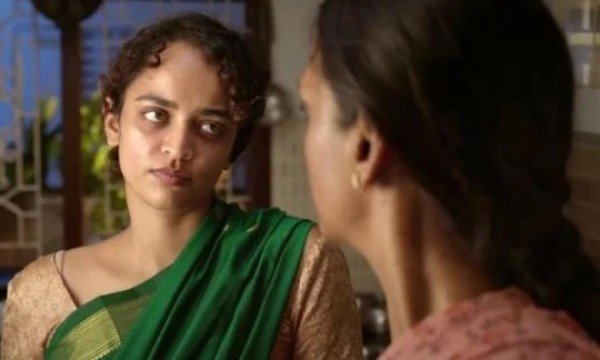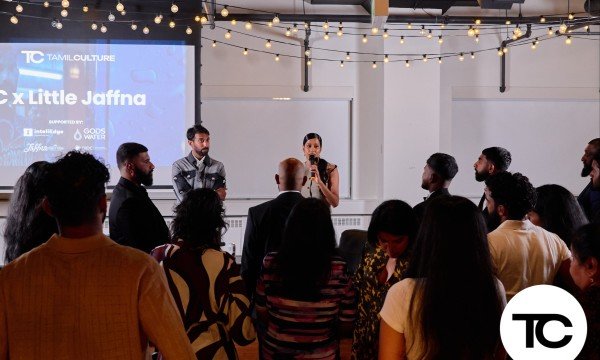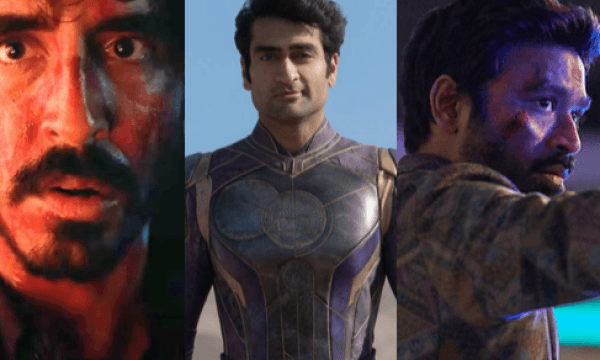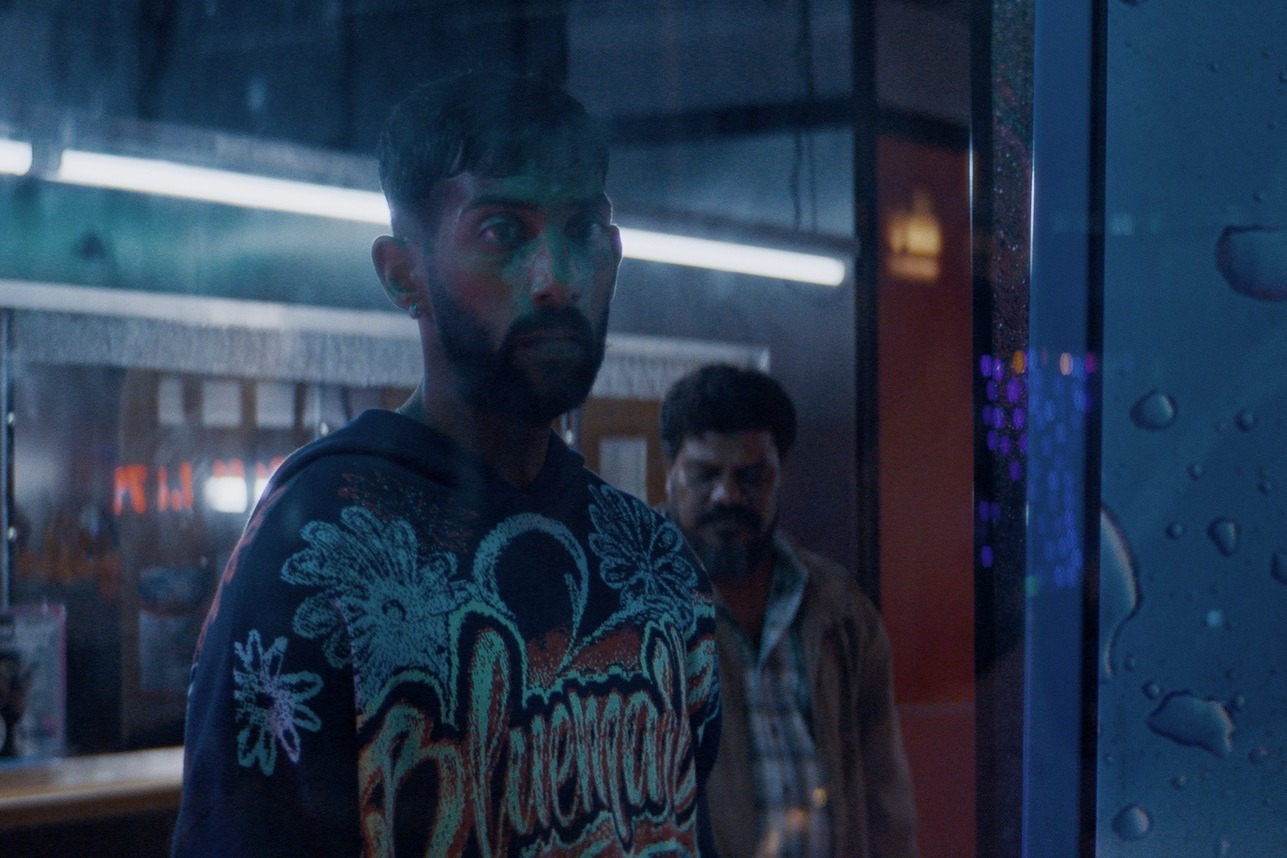
Fresh from its screening at the prestigious Critic’s Week at the Venice Film Festival, Little Jaffna, the feature debut of actor, director, and screenwriter Lawrence Valin, is now headed to the Toronto International Film Festival on September 14, 2024 at the Royal Alexandra theatre. In an exclusive conversation with TC, Lawrence shares insights into his evolution from actor to director, the impact of his French-Tamil heritage on his creative process, and his excitement to showcase Little Jaffna in Toronto, home to the largest Tamil diaspora. Don’t miss it at TIFF!
For tickets: https://www.tiff.net/events/little-jaffna
When did you realise that Cinema was your calling? Tell us about your initial journey as an actor?
I was born and raised in France. I started watching movies when I was around 8 or 9-years-old, mainly focusing on Rajnikanth and Vijay films. Although I watched French movies as well, I identified more with the heroes in Tamil movies because they looked like me. French films predominantly featured white protagonists, and it was rare to see any Tamil characters. My passion for cinema, particularly acting, was ignited by Tamil movies. When I shared this interest with my family, they didn't take it seriously since I was a child, so I didn't pursue it earnestly at the time. My family used to call me 'Kamal Hassan.'
I set aside my thoughts on acting and eventually pursued a degree in Business Management. As part of the program, we were required to take a theatre course designed to make us feel comfortable and confident speaking to large audiences. During this time, one of my teachers mentioned that there were schools where one could learn acting and potentially pursue it as a career. Until then, I had grown up believing that to become an actor, you had to be born into a family within the industry, as I had seen in Tamil cinema. However, the teacher also noted that there was only a 0.5% chance of becoming a working actor who could sustain a livelihood in the industry.
I immediately responded, "So, there's at least a 0.5% chance, right?" With that, I quit Management and enrolled in L'Atelier Blanche Salant & Paul Weaver, a theatre school, marking the beginning of my acting journey. It was a five-year program, and upon completing it, I quickly found acting opportunities because there were very few actors who looked like me. However, most of these roles required me either not to speak French or to speak it with an immigrant accent. I was often cast as a refugee, a rose seller, or a fakir—stereotypical roles. Initially, I took these roles with enthusiasm because I was getting the chance to act in cinema. But after a while, I realised that I couldn't continue down this path and needed to find a different way forward.
When I began making my first short film, many people from the Tamil community opened their arms to help me. This experience made me realise how many people placed their hopes in me. In the Tamil community, everyone tends to know each other, but no one knew who I was, and there was curiosity about what I was trying to accomplish. Growing up, I had no Tamil role models, so it became important to me to be an example that this path could be followed. Although I always felt 'French' growing up, entering the industry made me identify with and value my Tamil identity. It became a question of how to portray this hyphenated French-Tamil identity, and films became the medium for this expression.
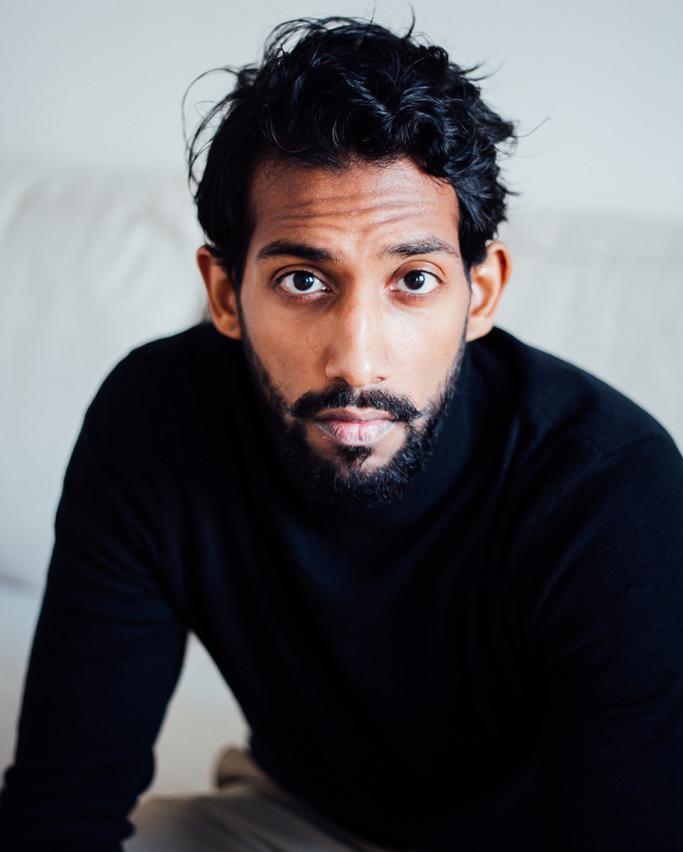
You rejected playing a supportive role in the acclaimed Dheepan, a film by the prolific director Jacques Audiard. Most upcoming actors like you at that time would have felt that this is a great learning opportunity. Yet why was being the protagonist important to you?
When I learned that Jacques was casting for Dheepan, a film with a Tamil protagonist, I was determined to land the lead role, no matter what it took. Jacques had previously made a film called Un prophète, where he cast an unknown actor at the time, Tahar Rahim, who became incredibly sought after post the film. I hoped for a similar trajectory—a French-Tamil actor whose career would be completely transformed by being part of Dheepan.
I auditioned, and three months later, I received a call saying I was selected—not even for a supporting role, but for a background role in the film, one where I might not even interact with Jacques. I was shattered. I immediately declined the offer. While it might have been a good learning opportunity, my ego as an actor wouldn’t let me accept it. I knew I was better than this. I had hoped this film would open doors for Tamil actors like me. At the same time, I understood that another French director might hesitate to make a film with a Tamil protagonist, fearing it would be compared to Dheepan and seen as unoriginal.
That’s when I decided to take control of my own destiny if no one else was going to shape it for me. This marked the turning point in my artistic career, leading me to start writing
How did you venture into directing and what is your most preferred role?
My calling is to be an actor, but acting gave me the strength to write. I've been hungry for roles that allow me to showcase my talent, and this drove me to create the roles I wanted to see myself play on screen. Once I started writing, I needed someone to bring these scripts to life. However, people were not willing to take on the work of a relatively unknown newcomer like me. So, I decided to learn how to direct. I chose to attend La Fémis to master this craft—an esteemed institution, though I didn't fully realise its significance at the time of enrollment.
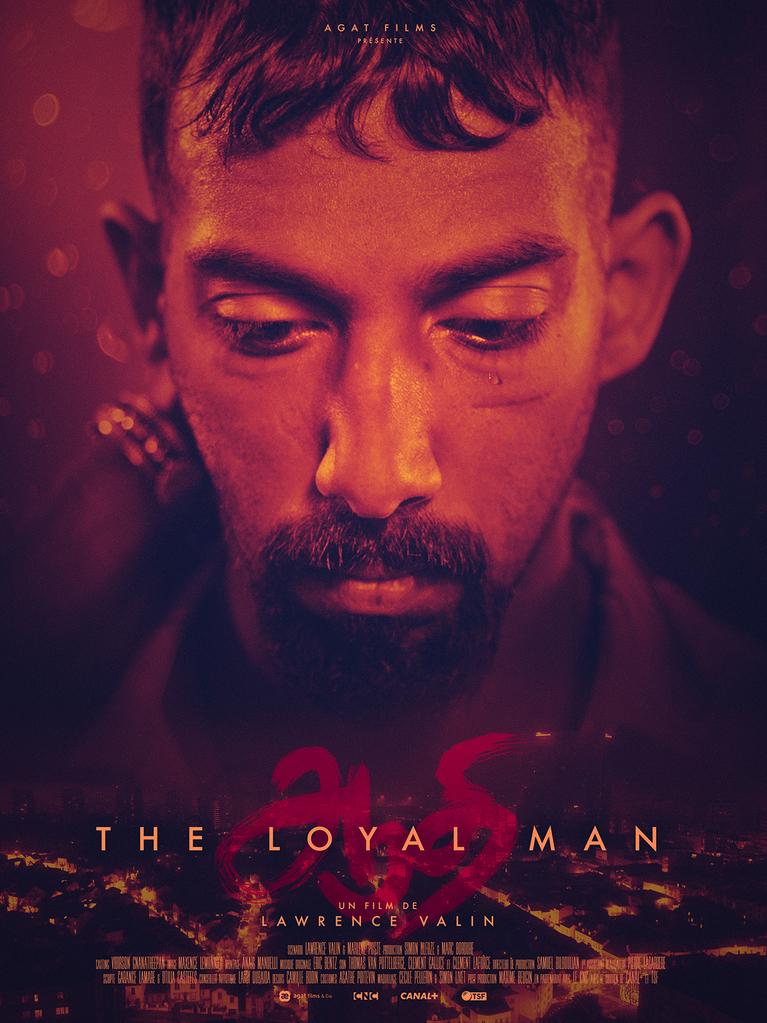
‘Little Jaffna’ the short to ‘Little Jaffna’ the full-length feature, how did these projects come to be?
For my final year project, I chose to write, direct, and act in the short film I envisioned. After becoming an actor, I watched a lot of Scorsese, Tarantino, and Korean films, and I wanted to bring that aesthetic to a film centered around a Tamil protagonist set in France. I also wanted to incorporate some of the 'mass' elements typical of Tamil cinema. From a Western perspective, Tamil films are often viewed somewhat comically. However, I understood that my audience would be French, not Tamil.
I made the short film Little Jaffna with these ideas in mind. The film was selected for the Clermont-Ferrand festival and won an award.
This recognition led to many opportunities for me as a director, and I went on to make the medium-length film The Loyal Man. This film was also selected at Clermont-Ferrand, where I won the Best Actor Award, further validating my passion for acting. Alongside me, a French actress won the Best Actress Award. Everyone said this would be my ticket to great opportunities in French cinema. She received many offers, but I was still only offered stereotypical roles. I continued to reject these roles, which eventually led me to write Little Jaffna, the feature film.
Why was it important that Little Jaffna was your first feature film?
My motivation for making this my first feature film was to give the French audience, starting from the perspective of an outsider, a closer view and appreciation of the Tamil community as the events unfold. In French cinema, actors of color are usually cast in minor supporting roles. I wanted to flip that dynamic, giving Tamil actors the predominant screen space. Although I didn’t grow up within the Tamil community, I am now a part of it. I hope to take a French viewer on a similar journey—from being an outsider to gaining an insider's perspective.
The characters in this film are all French-Tamils. Some speak French fluently, while others only speak Tamil, which is typical in our community. For instance, my grandmother only speaks Tamil but understands French. This diversity within our own community in France is what I aim to portray in this film. I hope this film resonates with upcoming generations in the diaspora, who may find this shared experience universal and meaningful.
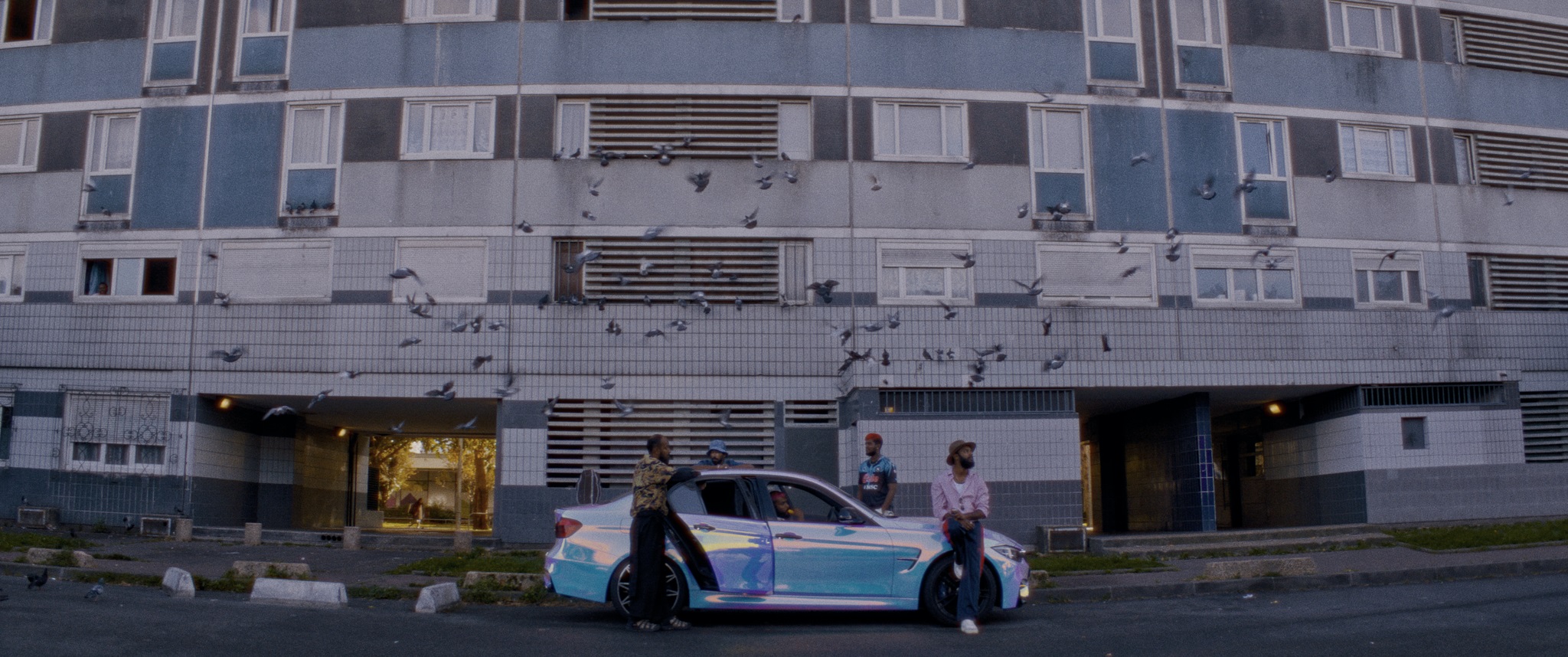
Given the stereotypes you wanted to break out from, why didn't you want to make a film that's based on a French narrative?
Night Shyamalan mentioned in an interview that his early films with Indian actors failed, but those with Western actors were successful. I'm not making movies to be successful. As a director, I approached this film as if it might be my last, which took away all my fear. When we began financing Little Jaffna, everyone said that with an all-Tamil cast and relatively unknown actors, it would be extremely difficult to secure funding. But we broke that notion because the strength of the story and script was undeniable. I was determined that once companies read the script, they would be eager to fund the film. That's why it took me five years to write it, and I didn't show it to anyone in the initial stages. I wasn't strategic in writing my film; I wanted to create the film I envisioned—a film that could serve as an example for future generations.
How was it working with seasoned actors such as Radikaa and Vela Ramamoorthy?
When I met Radikaa ma'am and Vela Ramamoorthy sir, they wondered how the French audience would accept a film like this. The budget we had for the film was minuscule compared to typical movie budgets in India. However, when I narrated the story to Radikaa ma'am, she was ecstatic and mentioned that she had been waiting for a role like this in her career and offered to act with no payment. She plays the role of my grandmother and was brilliant in it. When I acted alongside her, I was mesmerised by her performance; she delivered her lines with such ease. Many of the cast members were new to acting, but they were inspired by these seasoned actors on set, which elevated their own performances.
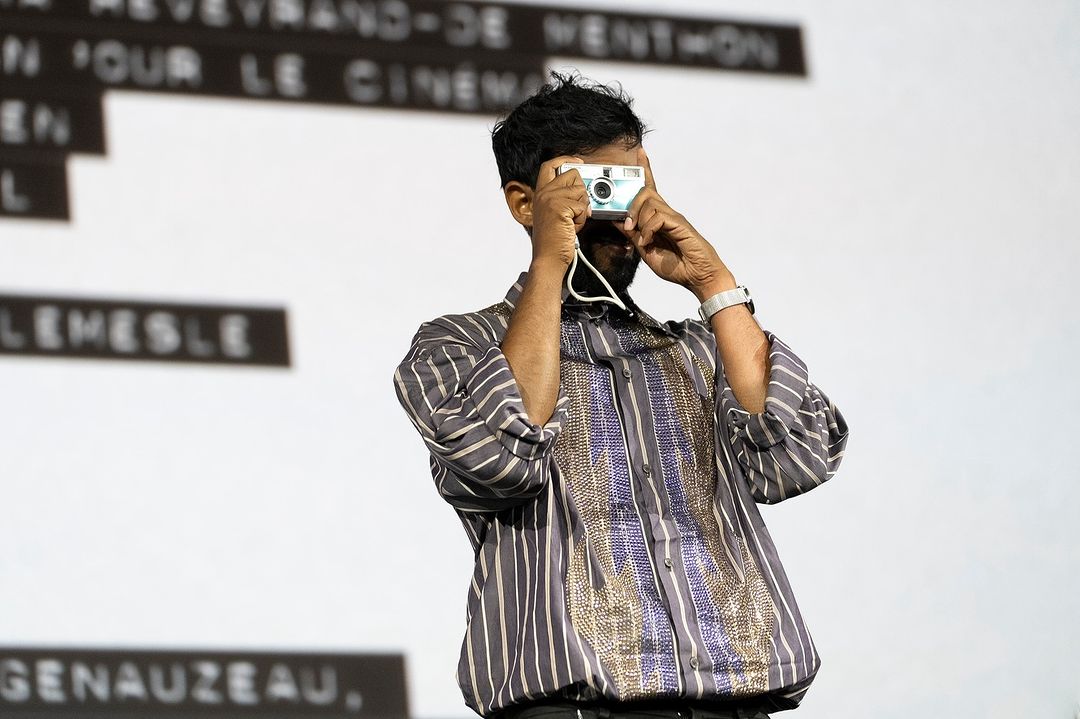
Source: Settimana della Critica Venice Film Festival
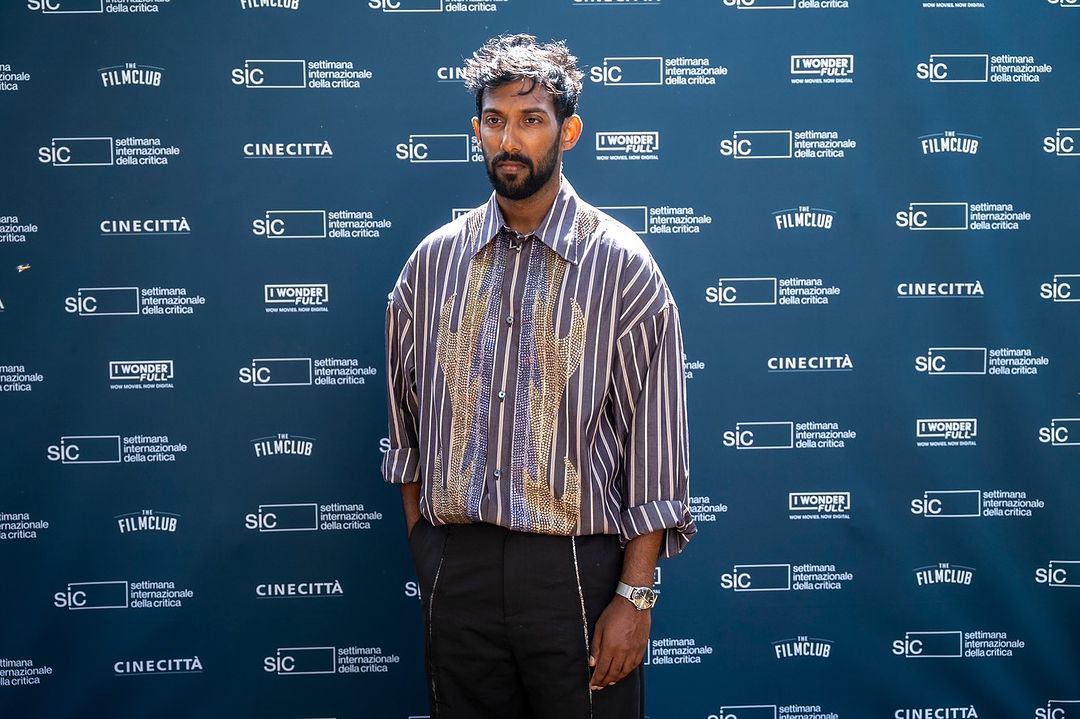
Source: Settimana della Critica Venice Film Festival
How does it feel that Little Jaffna is selected at the Venice and Toronto film festivals?
I’m feeling both nervous and happy. This is the first time I’m sharing this film with the public. What was once a dream in my mind is now something the community is about to experience. I’m anxious about how they will receive it. It’s important that this film is well received because that could open doors for many other Tamil creatives. The film has been selected for seven festivals happening within a month, which is a good sign. But even so, I would love to showcase my film where the Tamil community is largest—and that’s in Toronto!
In a country like France, which values a 'French' identity more than a hyphenated one like French-Tamil, how does this impact your work?
During my childhood, I never felt any difference, but once I stepped into the French film industry, I began to notice that decisions were often made based on my skin color. As an actor, I didn’t have a pleasant experience. However, as a director, I would say that being in France has provided the best opportunities I could ask for. I don’t think I could have made a film like Little Jaffna in Sri Lanka or India. For example, could you fund a film in India with an entirely white cast? Never. France is giving me that opportunity.
Part of this positive experience as a director can be attributed to La Fémis, where I learned the craft of directing. I enrolled in the school without fully realising its reach, but it opened many doors for me. Since graduating in 2017, I've had a strong trajectory as a director, progressing from short films to medium-length films, and now to a full feature in 2024. In comparison, I started acting in 2011, and it has taken me until 2024 to finally be a lead character in a French film made by Tamils.
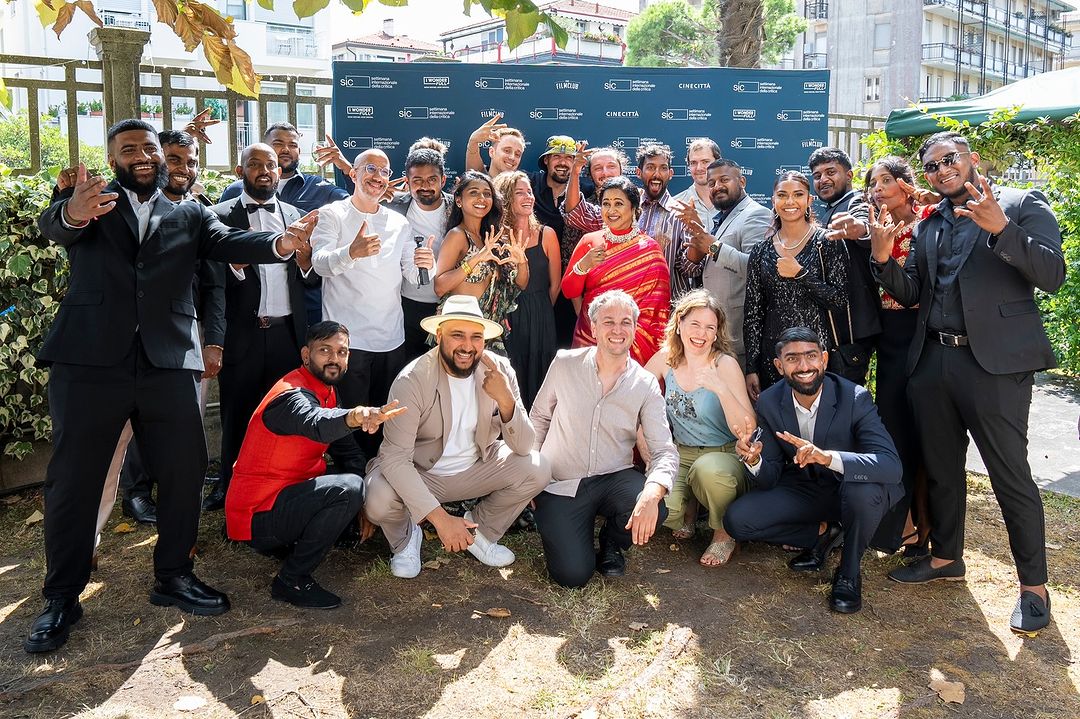
Source: Settimana della Critica Venice Film Festival
What’s next for you?
I finished Little Jaffna in July 2024, and right now, I’m traveling with the film, gathering feedback, and reflecting on it. Once things settle down, I can start my next venture. I have many ideas, but everything depends on how the next few months unfold. Some suggest I should go to India to make a film, but I’m unsure if my working style aligns with their film making culture. As an actor, I have many dreams as well. At this moment, I’m eagerly waiting to see how the future unfolds.
TC Bits:
-
What’s your favorite spot in Little Jaffna (La Chappelle, Paris)? There are too many. Rue Louis Blanc is a stretch that primarily has Tamil shops. There is a grocery shop and right in front of it is probably one of my favorite places and I have filmed many scenes there.
-
Have you been to Jaffna? I haven’t been to Jaffna. But I have been to Trincomalee, where my family is from. I hope I get to present Little Jaffna in Yarlpaanam. But I am also unsure how censorship in Sri Lanka would impact the film and me.
-
Favorite memory from Trincomalee? I met my grandfather for the first time in Trincomalee. He gave me a baby turtle to play with. As a kid I naively thought that I could bring it back to France as a pet. I also love bathing in well water!
-
Favourite Tamil food? Kothu roti and rolls.
-
If a Tamil person visits France, where would you recommend them to visit? La Chappelle for sure! As a Tamil person, the feeling you get in La Chappelle is something else. It acts as this meeting point for Tamils across Paris and France. I would also suggest a visit to Lourdes.
-
A French film you would recommend? Le Samouraï by Jean-Pierre Melville. It is an old film but one of my favorites. Another would be the works of Jacques Audiard, especially Un prophète. I hope to get to work with Jacques in the future as he’s one of the best in the business.
-
A Tamil film you would recommend? Ghilli. I’ve watched it over fifty times! I don’t know many Tamil directors. I do like the work of Vetrimaaran as it has a blend of European and Tamil film making styles.
-
Are there any artists you’re eager to work with in the future? Jacques Audiard or perhaps actor Vijay come to mind. I’d love to work with any Tamil actor, really. After working with Radikaa ma’am on this film, I felt it would be wonderful to bring such actors to France to be part of my work. Maybe one day I would like to create something like a Tamil version of Black Panther?
-
Do you have any quirky rituals during film making? Since I act in my own films, I make a peculiar 'ahh' sound from the bottom of my throat when I’m on my way or walking down the street to my film set. The reason I do this is that it makes people look at me strangely, wondering who I am and if I'm okay. This helps me shed any inhibitions about my surroundings and perform the way I want to.
-
What do you do for fun outside of film? I enjoy the simple pleasures in life. The time I spend with my kids. The beach, eating ice cream and sharing these moments with my children. My work gives me extreme pleasure and I don’t seek it elsewhere in other activities.
-
Fact of life that you live by? If you don’t believe in yourself, no one else will. You need a strong sense of self confidence.
-
Proud thing of being Tamil: Our cultural values. The way you are taught to treat your elders and each other feels very unique to us. And I am very particular about knowing the language and I ensure that I speak Tamil with my children. The roots and where we come from is important for me and the language helps in continuing that cultural legacy.







